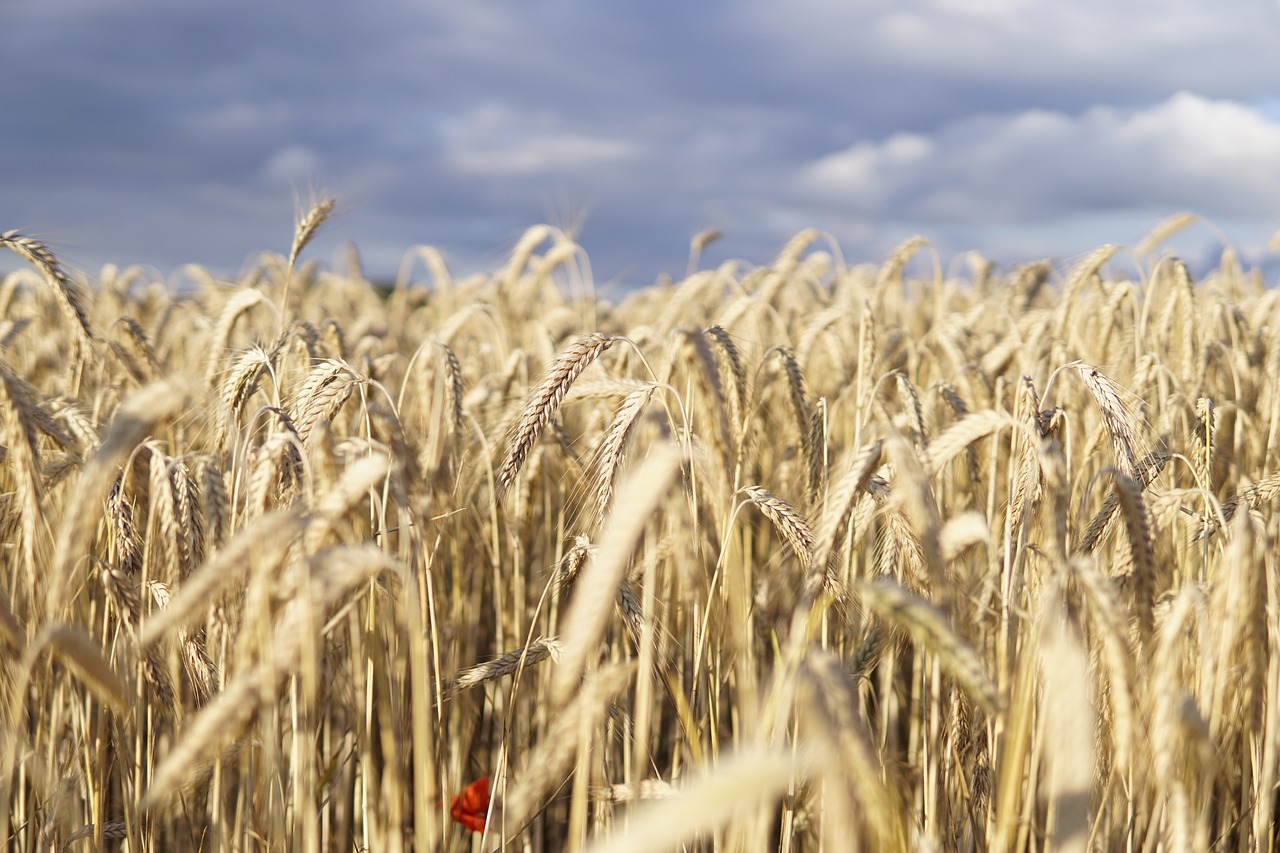Bulk Cargo Brokerage services for shipments of grain and related cargos of product sourced from Ukraine, Moldova, Romania and Bulgaria, shipped from Black Sea ports to customers across the Mediterranean, the EU and Turkey.
FIND OUT MORE BELOW![[LOGO] Black Sea Brokers (UK) - Grain Brokerage Services](images/BSB_UK_Logo-1.png)

We use our extensive network of contacts to broker bulk cargo shipments of grain and related cargos of product sourced from Ukraine, Moldova, Romania and Bulgaria, shipped from Black Sea ports to customers across the Mediterranean, the EU and Turkey.

Black Sea Brokers understand the market and the needs of its customers and aims to engage with and support all parties through the trade process.
We aim to enhance the overall experience of trade and to allow customers to focus on their business by providing our professional insight and skills to monitor and negotiate with the market.
We liase with producers to get advanced insight into supply, demand and related influencing factors.
We monitor price trends from markets across the world to help customers make informed decisions when they enter into agreements.
We strive to enter agreements that provide the best offer in terms of quality, price, volume and timeframe of supply, to reach agreements that benefit all parties invovled in a trade.
We work to secure supplies of:
grains including barley, corn, sorghum and wheat;
oilseeds such as sunflower seeds and rape seeds;
pulses like chickpeas, lentils and peas; and
by-products including sunflower seed cake, sunflower seed meal, corn bran mean, wheat bran pellets, soya bean pellets and rapeseed meal.
We also have experience in negotiating and brokering supply of other bulk cargoes including steel products.
Black Sea Brokers are working with customers in Bulgaria, Cyprus, Czech Republic, Egypt, Georgia, Germany, Ireland, Italy, Latvia, Malaysia, Moldova, Netherlands, Poland, Spain, Switzerland, Turkey, Ukraine, United Arab Emirates; and United Kingdom.
On shipments to Bulgaria, China, Cyprus, Egypt, France, Greece, Israel, Italy, Lebanon, Romania, Spain, Turkey and Ukraine.
On goods of origin Moldova and Ukraine.
The agricultural sector plays a central role in the country’s economy. 73% of utilised agricultural area is arable land, among the highest percentage in Eastern Europe.
In 2022, exports of cereals and cereal-based preparations from The Republic of Moldova have increased by 2.6 times, while imports have increased by 56.7%.
In 2018, Moldova produced 1.1 million tonnes of wheat. However, wheat exports from Moldova fluctuate, but are on the increase with 85,000 tonnes exported in 2020.
Ukraine
is a critical supplier of grains and related crops such as sunflower seed.
Ukraine accounts for 10% of the world wheat market, 15% of the corn market, and 13% of the barley market.
The war in Ukraine is having a major impact on
food supply chains. Despite this, Ukraine is expected to produce 67 million MT of grains and oilseeds in the 2022/23.
We continue to work with our colleagues that remain in the region and those that find themselves displaced due to the war, to help to find supplies to satisfy global demand.
July 2024
July 2024 has seen a notable upswing in Ukrainian grain exports, demonstrating resilience and strategic adaptability in the sector. Despite ongoing geopolitical tensions and infrastructural challenges, Ukraine's grain exports have shown significant improvement, with a marked increase in ship arrivals near pre-war levels and robust activity through newly established Black Sea corridors.
Ukraine's grain exports for the month reached 2.16 million metric tons, a significant rise from the previous year's figures. This volume included key staples such as corn, wheat, and barley, highlighting the country's continued role as a major player in the global grain market. The introduction of a new grain-export corridor has been pivotal, allowing for increased export capacity and contributing to a more stable global food supply chain.
Despite the optimistic performance in July, projections for the 2024-25 marketing year suggest a potential downturn in grain exports, attributed to lower supply and reduced production estimates. The Ukrainian Grain Association forecasts total grain exports to reach around 35.5 million metric tons, which reflects the ongoing challenges and the need for continued strategic planning and investment in the agricultural sector.
While the current trends are promising, the grain brokerage community remains vigilant. The geopolitical landscape and environmental factors continue to pose risks that could impact future output and export capabilities. Strategic investments and international cooperation will be crucial in sustaining Ukraine's agricultural exports and supporting global food security.
In conclusion, July 2024 has highlighted both the challenges and the significant strides made in Ukraine's grain export sector. The country's ability to navigate complex market dynamics and geopolitical challenges continues to play a critical role in the global grain supply chain.
June 2024
Ukraine has seen a slight increase in grain exports during the 2023/24 marketing year. As of early June 2024, grain exports totaled approximately 47 million tons, marking a 2.9% increase compared to the previous year (Українські Новини). The main types of grain exported include wheat, barley, corn, and rye. Despite geopolitical tensions and challenges, Ukraine has managed to maintain robust export volumes, largely attributed to the resumption of operations at major marine ports like Chornomorsk, Odesa, and Pivdennyi.
Challenges: The grain export sector faces significant logistical and geopolitical challenges, particularly regarding the Black Sea export routes. The recent blockade and restrictions in the Black Sea have prompted Ukraine to explore alternative export routes, including the Danube River and overland routes through neighboring countries. Additionally, the USDA has noted that Ukrainian grain exports could face potential disruptions due to issues in the Red Sea, affecting the Black Sea export program.
Forward Outlook for 2024:
Looking forward, Ukraine's grain export potential in MY 2024-25 is expected to decrease due to lower production forecasts and reduced planting areas, as farmers shift their focus towards more profitable oilseeds. The total grain exports are projected to be around 35.5 million metric tons, a decrease from previous forecasts.
Strategic Developments:
Ukraine is focusing on improving its logistical capabilities and securing alternative export routes to mitigate the impact of Black Sea blockades. The development of new grain-export corridors and the increased use of Danube River ports are pivotal in maintaining export volumes.
Despite the geopolitical challenges and logistical constraints, Ukraine continues to be a significant player in the global grain market. The country's ability to adapt to changing circumstances and explore alternative export strategies is crucial for maintaining its position in the global supply chain.
June 2024
Moldova has experienced a significant increase in grain exports, particularly notable in the first eight months of 2022 where grain exports constituted 13% of total goods deliveries from the country. The surge in exports can be attributed to the re-exportation of Ukrainian grains, which are transported to Romanian ports and then distributed to other markets. This increase underscores Moldova's strategic role as a transit hub in the region.
EU Support and Trade Dynamics: The European Union has continued its support for Moldova by renewing the suspension of all import duties on Moldovan products for another year. This measure is part of the EU's broader commitment to assist Moldova in redirecting its exports primarily towards EU markets, especially in light of the disruptions caused by regional conflicts. In 2022, Moldova's exports to the EU showed a significant increase, indicating a positive response to these measures.
Romania's Role as a Transit Country: Romania's strategic location as a Black Sea nation makes it a critical transit route for grain exports from both Ukraine and Moldova. Romania's ports play a vital role in facilitating the international distribution of grains, which is crucial for the agricultural sectors of its neighboring countries.
Looking ahead, Moldova's ability to maintain and expand its grain export capacity will largely depend on regional stability and its continued integration with EU markets. The support from the EU in terms of trade facilitation and economic aid will be crucial in this respect. Additionally, Romania's infrastructure and cooperative regional policies will be vital in ensuring the Black Sea remains a reliable conduit for grain exports amidst geopolitical challenges.
June 2024
Global Demand Overview:
The global demand for grains is expected to continue rising, driven by increasing population and the growing need for food and biofuel. The world population, projected to reach 8.5 billion by 2030, necessitates an increase in staple crops like wheat, rice, soybeans, and corn. This escalation in demand aligns with a predicted 70% rise in global food demand by 2050, underpinning the critical role of intensified agricultural production.
Eastern European Contribution:
Eastern European countries, notably those in the Black Sea region, play a pivotal role in meeting global grain demand. This region, including countries like Ukraine, is crucial for wheat production and export. The Black Sea suppliers are anticipated to fulfill a significant portion of global wheat demand at the beginning of the 2024/25 season, highlighting their strategic importance in the grain supply chain.
Market Projections:
For the 2024/25 season, the global grain market is expected to witness a complex interplay of supply and demand dynamics. While overall cereal production is projected to remain stable, specific decreases in global maize and wheat outputs due to adverse weather in the Black Sea region are anticipated. Nonetheless, the increased utilization and slightly growing stock levels of grains like barley, rice, and sorghum suggest a resilient global supply chain capable of adapting to these challenges.
The Eastern European region, despite facing its own set of challenges, remains a critical player in the global grain market. The region's ability to adapt to and overcome logistical and geopolitical hurdles will be key to maintaining its role as a major grain supplier amid rising global demand and market volatilities. The strategic importance of these countries in stabilizing global grain supply underscores the interconnected nature of global agricultural markets and the necessity for robust international cooperation and trade strategies.
August 2023
Ukraine Ministry of Agrarian Policy has appealed to the
European Commission for help with compensation for Ukrainian farmers. Transport
and Logistics costs are increasing now that grain distribution has refocused to
use Danube and EU ports due to the inaccessibility of key ports such as Odesa –
which are suffering from increased attacks from Russia and threats of sea blockages.
The blockade of the Black Sea ports, the cost of
transporting Ukrainian grain to distant EU ports is very expensive for the
farmer. And further delivery of agricultural products from these ports to the
countries of Africa, Asia and the Middle East is unprofitable for Ukrainian
farmers.
A positive decision from the European Commission will
improve the possibilities of uninterrupted export of Ukrainian agricultural
products. The provision of such subsidies, which will be paid only when
products are delivered to distant European ports, will improve exports,
including positively affect transit through Poland, Hungary, Slovakia and
Bulgaria,” said Taras Vysotskyi, Deputy Minister of Agrarian Policy and Food of
Ukraine.
August 16th - the first of several ships stuck in Black Sea ports, after Russia terminated the safe passage corridor deal, has been allowed to depart Odesa via a temporary safe corridor.
A temporary corridor has been established to evacuate ships that were in the Ukrainian ports of Chornomorsk, Odesa and Pivdennyi at the time of the full-scale invasion of the Russian Federation.
The last vessel that carried grain under the Grain Deal, left the port of Odesa on July 16. "After the disruption of the Grain Deal, the Russian Federation resorted to systematic air attacks on port infrastructure to stop Ukrainian agricultural export. At the same time, there are information speculations and attempts of provocations in the Black Sea to influence the movement of ships to Ukrainian ports," said the Ukrainian Minister for Communities, Territories and Infrastructure Development, Oleksandr Kubrakov.
July 2023
The Black Sea Grain Initiative was brokered a year ago by
Turkey and the United Nations. It allowed for the export of Ukrainian grain
from its Black Sea Ports by guaranteeing safe passage for ships carrying
Ukrainian grain through the Black Sea to Turkey’s Bosphorus Strait. This deal
expired on Monday 17th July.
Wheat prices have risen sharply after Russia pulled out of this guarantee initiative. Russia has said that it will treat ships
heading for Ukrainian ports as potential military targets.
Wheat prices on the European stock exchange soared by 8.2% on 19th July
following the attacks and announcement.
This follows increased attacks on Ukraine port cities, including Odesa and
Mykolaiv. Volodymyr Zelensky accused Russia of deliberately targeting grain
export infrastructure and putting vulnerable countries at risk.
January 2023
Grains leaving Ukraine ports demonstrate the signficance of Ukrainian grain exports for global food security. The Black Sea Grain Inititative has enabled supplies to continue but demand remains high under difficult circumstances.
Since August 2022, 653 ships have left the ports of Greater Odesa, exporting over 17.5 million tonnes of Ukrainian foods to countries in Asia, Europe and Africa.
Over 40% of the cargo was maize, the grain most affected by blockages in Ukrainian granaries at the beginning of the war (75% of the 20 million tonnes of grain stored). It had to be moved quickly to make space for wheat from the summer harvest.
66% of wheat exported through the Black Sea Grain Initiative reached developing countries. Maize, on the other hand, is exported mainly to developed countries, where it’s used primarily for food production (i.e. livestock feeding).
The United Nations World Food Programme (WFP – the largest humanitarian organisation in the world) has restarted shipping wheat from Black Sea ports. Before the war, the WFP bought half of its grain stock from Ukraine. So far, five ships carrying a total of over 150,000 tonnes of wheat have left Ukrainian ports en route to Ethiopia, Yemen, Djibouti, Somalia and Afghanistan.
In the Bosphorus there are queues of ships awaiting inspect prior to approval for safe transit under the Black Sea Grain Initiative. It has been reported that on 15th January 2023, 109 ships were waiting inline, indicating the importance and demand for safe passage to Ukraine ports. Earlier on 13th January, 11 ships with 313,500 tonnes of agricultural products left the commercial sea ports of Great Odesa along the "grain corridor."
On 17th November 2022, Ukraine Infrastructure Minister Oleksandr Kubrakov announced that the Initiative for the safe transportation of agricultural products through the Black Sea was extended for another 120 days. This will help to enable supplies of agricultural supplies through to March 2023.
January 2023
The first quarter of the year is normally the busiest period for the export of corn from Ukraine. Demand is high and there is extra incentive to export stores of grain harvested in the autumn.
Although Ukraine has exported almost 23.6 million tonnes of grain so far in the 2022/23 season, it is down from the 33.5 million tonnes exported by the same stage of the previous season. The volume included around 8.6 million tonnes of wheat, 13.3 million tonnes of corn and about 1.7 million tonnes of barley.
The Black Sea Grain Initiative guaranteed the safety of commercial ships visiting the ports of Odesa, Chornomorsk and Pivdennyi. But, every ship has to be inspected by a team composed of representatives from Turkey, Russia, Ukraine, and the UN. This is causing delays.
There are alternative export routes. The closure of Ukraine's deepsea ports between March and July following Russia's invasion forced exporters to defer shipments or find alternative routes, most of which were via Romania by rail or barge. Those trains and smaller boats weren't able to handle much more than 2.5 million tonnes a month.
In the first three months of the grain corridor's operation, between August and October 2022, the deepsea ports shipped 4.4 million mt of corn. That was more than the 3.8 million mt over the same period a year earlier but wasn't sufficient to clear the corn remaining from the 2021 crop.
In the short term market participants agree that Ukraine's corn exports will be limited by the frequency of ships visiting its ports rather than its farmers' ability to produce the grain.
China, Spain, the Netherlands, Turkey and Egypt were the five largest importers for Ukrainian corn between 2020 and 2022, with China taking slightly less than a third of the total. Spain and Italy have become the most conspicuous buyers. The European Union's need for imported corn has been especially acute this year due to the drought that many countries, including France, experienced in the key pollination period over the summer. Much of the corn exported from Romania will continue to be of Ukrainian origin.
October 2022
Ukraine is one of the world’s largest grain exporters, normally supplying approximately 45 million tonnes of grain to the global market every year.
Recipients of foodstuffs from Ukraine include Spain (1.8m tonnes), Turkey (1.3m tonnes), China (0.9m tonnes), Italy (0.8m tonnes) and Egypt (0.4m tonnes).
Following the invasion of Ukraine in February 2022, it was unsafe to ship grain from Ukrainian ports and land routes. Grain stores filled and global prices escalated. The interuptions in supply and huge price increases contributed to a global food shortage impacting developing and emerging economies.
In July 2022, the UN brokered The Initiative on the Safe Transportation of Grain and Foodstuffs from Ukrainian ports, also called the Black Sea Grain Initiative .
The agreement is designed to provide the safe navigation for the export of grain and related foodstuffs including furtiliser from the Ukrainian ports of Odesa, Chornomorsk and Yuzhne. Ukraine expected to export 60 million tonnes over 9 months should their ports continue to operate. This was in addition to land corridors that had established safe "solidarity corridors" through neighbouring European borders.
Whilst the war in Ukraine continues, the situation remains fluid and rapidly changing. Black Sea Brokers continue to monitor the operational capacity of the ports, the related grain storage facilities and the infrastructure that supplies them.
In 2022/23 Ukraine is expected to produce 50-52 million MT of grains and 15-17 million MT of oilseeds, a figure that is significantly higher than domestic consumption.
7 November 2022
Ukraine grain exports are down by 30% so far in the 2022/2023 year according to Ukraine Agriculture Ministry figures published in November 2022.
At a similar stage in the 2021/2022 year, exports of grain were almost 20.6 million tonnes. In year to-date, exports are at 14.3 million tonnes.
Grain exports have declinded as a result of the war in Ukraine which have impacted production and logistics supply chains, not least with closure and restrictions of operation in Black Sea Ports.
The United Nations Black Sea Grain Initiative has helped to contribute to an increase of exports as some port operations resume.
Ukraine Ministry data shows exports in the July 2022 to June 2023 season include 5.4 million tonnes of wheat, 7.7 millions tonnes of corn and 1.2 million tonnes of barley.
Ukraine harvest is estimated to be between 50 million and 52 million tonnes of grain this year. This is lower than the previous year's harvest of 86 million tonnes.
Source: via Reuters (Ukraine grain exports down 30.7% so far in 2022/23 - Ministry)
19 October 2022
Ukraine has shipped 10.4 million tonnes of agricultural products during the first phase of Autumn 2022.
In just 1 1/2 months, Ukraine has shipped 10.4 million tonnes of grains, pulses, vegetable oils and their related by-products, representing a 1 million tonne increase on the entire summer of 2022.
At the start of October 2022, Ukraine has shipped 3.6 million tonnes of grain. Exports of wheat in a similar period have reached 1.149 million tonnes; and 1.089 million tonnes for corn.
Since the end of February, despite the challenges of operating during a war, Ukraine has shipped over 4.6 million tonnes of wheat.
There has been some decline in the shipment of vegetable oils and soybeans; but an increase in the shipment of barley and sunflower.
Overall exports of agricultural products from Ukraine for the first half of October 2022 are: corn 30.7%, wheat 9.61%, rapeseed 7.47%, sunflower oil 7.23%, vegetable oil 4.28%, sunflower seed 4.28%, barley 4.64%, soybeans 3.33% and soybean oil 0.38%.
Source: Minstry of Agrarian Policy and Food of Ukraine. [10.4 million tons of agricultural products were shipped from Ukraine during the first part of autumn.]
Ukraine is an important food exporter, contributing to global supplies of key crops. For global exports, Ukraine supplies 42% of sunflower oill, 16% maize, 10% barley and 10% of wheat. [UN Food & Agriculture Organisation - Source: How can Ukraine export its harvest to the world?, May 2022]
The Danube river is a major route for European freight and issues into the Black Sea through its delta in Romania beyond the major sea port of Constanta. However the northern Danube delta borders on Ukraine which opperates river ports such as Izmail.
The Danube is not tidal and deals in barge traffic for bulk loads. More than 40 million tons of goods were carried on the Danube waterway and its tributaries in 2014, whereby a total of 14.3 million tons were transported on the Romanian Danube-Black Sea Canal.
The largest transport volumes are realised on the Lower Danube (Romania, Serbia).






Working from the United Kingdom with regional partners and local expertise in Bulgaria, Turkey & Ukraine.
United Kingdom
Black Sea Brokers
Oaklands, Bolton, Greater Manchester, BL6 4DT, UK [email protected]
www.blackseabrokers.co.uk
Ukraine — regional
partners
Black Sea Brokers (Ukraine)
Office 422, 24B, Genuezskaya Street, Odessa 65009
[email protected]
www.blackseabrokers.com.ua
Black Sea Brokers operates from the UK as a trading name of
Valetime Group Limited. Valetime Group Limited is a company registered in
England & Wales with Company Number 0475 9587 with its registered office at
Oaklands House, Lostock, Bolton, Greater Manchester, BL6 4DT, UK (GB). Further
Information is available by contacting [email protected]. Black
Sea Brokers operates under licence from Black Sea Brokers Limited, a company
registered in England & Wales with company number 12079592 with its
registered office at Oaklands House, BL6 4DT, UK (GB). | Update cookie preferences.
![[LOGO] Black Sea Brokers (UK) - Grain Brokerage Services](images/BSB_UK_Logo-1.png)
![[LOGO] Valetime Group (UK)](images/vtg_txt_logo.png)
